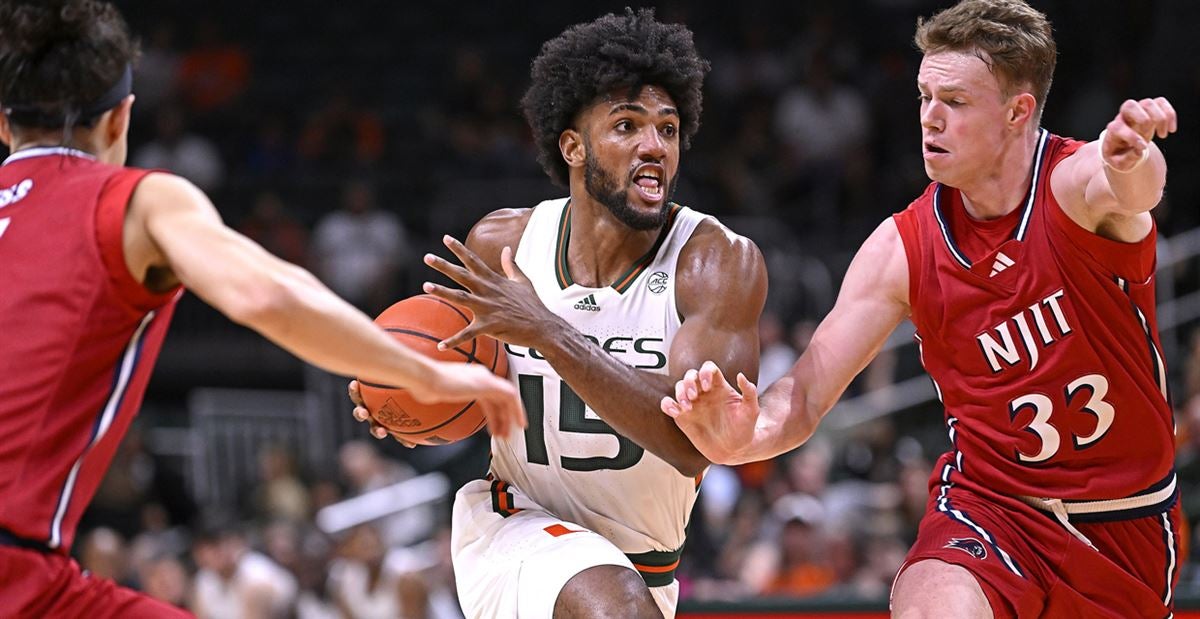Five keys to the game for No. 8 Miami at No. 12 Kentucky

It has been a poor start for Miami in allowing offensive rebounds regardless of their opponents as Miami ranks 351st (out of 362 teams) in allowing 14.0 offensive rebounds per game. In comparison, last year's team allowed 9.8 per game on the season and just 7.8 over the final 18 games. The high offensive rebounds allowed can really help an opponent if they are not having a good shooting night, but still able to score off second-change opportunities. With Kentucky's abilities on offense, they could take advantage of this in a big way and containing someone like Justin Edwards is important as Edwards could erupt with a big game at any time and getting putbacks could help get him going. And the responsibilities of defensive rebounding does not solely fall onto the frontcourt players, although certainly they need to be strong, but the guards as well. Wooga Poplar had an 11-rebound performance (with 10 defensive boards) this season so he is more than capable of providing in this area, but the rest of the guards also need to be on point especially with on the high amount of 3-point shots Kentucky has been taking as missed 3-point shots are often opportunities for the guards to corral the long carroms.
The Hurricanes also have not had many offensive rebounds themselves, ranking 331st at 7.8 a game, but part of that is the high efficiency they have had shooting the ball-1st in 3-point field goal percent (45.8) and 36th in 2-point percent (56.7)-although their offensive rebounding rate percent of 26.7 ranks just 247th. And crashing the offensive glass will be tough in this game if the point of emphasis is (and it should be) to get back on defense so this could limit the amount of players who can crash the boards.










